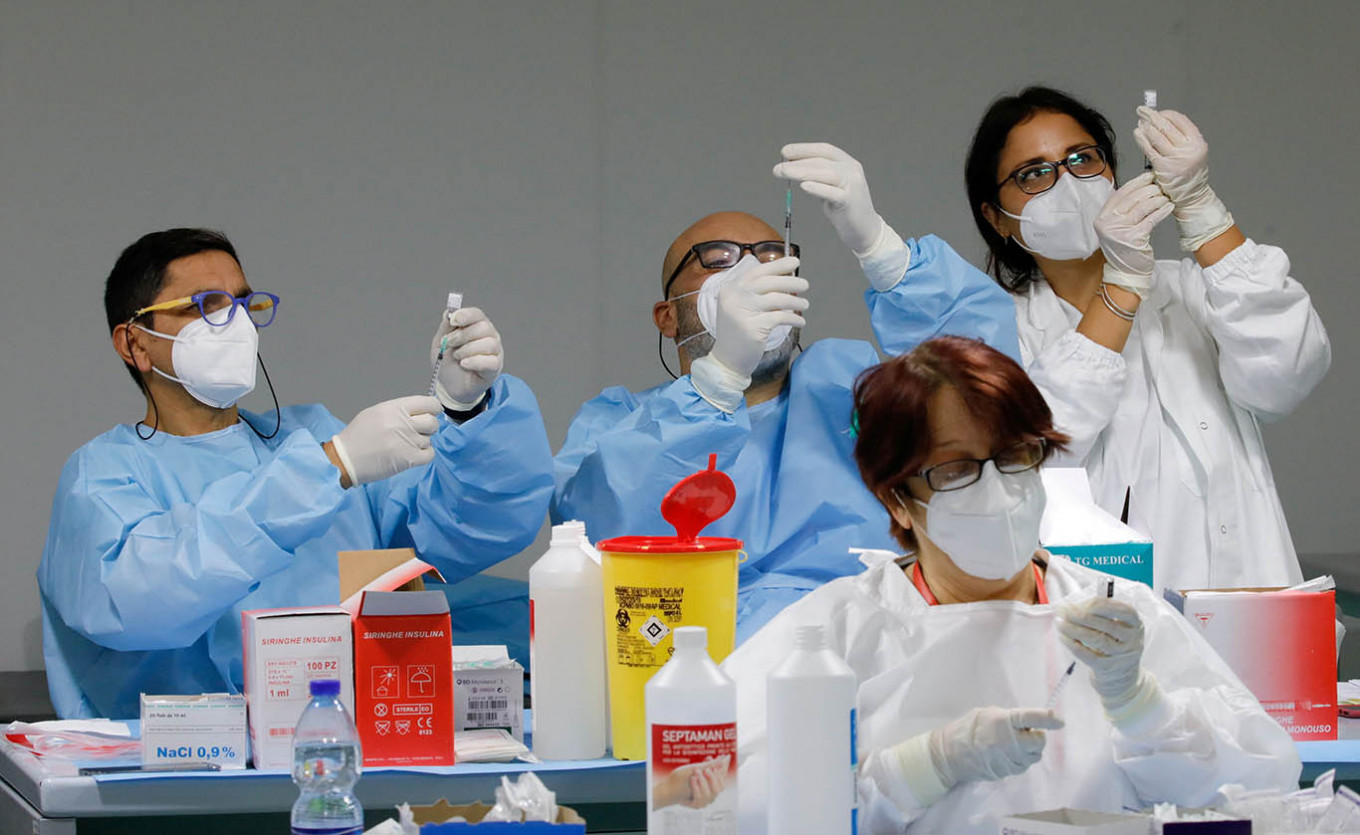Popular Reads
Top Results
Can't find what you're looking for?
View all search resultsPopular Reads
Top Results
Can't find what you're looking for?
View all search resultsJapan sees high rate of severe allergic reaction after taking Pfizer vaccine
Taro Kono told a parliamentary committee that 17 cases of anaphylaxis, a severe and potentially fatal allergic reaction, have been reported among the 107,558 health care workers who had been inoculated as of Tuesday.
Change text size
Gift Premium Articles
to Anyone
P
eople in Japan who received Pfizer's COVID-19 vaccine seem to have suffered anaphylaxis at a higher rate than in the United States and Europe, the minister in charge of vaccination efforts said Wednesday.
Taro Kono told a parliamentary committee that 17 cases of anaphylaxis, a severe and potentially fatal allergic reaction, have been reported among the 107,558 health care workers who had been inoculated as of Tuesday.
"It's true, this seems to be more than in the United States and Europe," he said.
The rate compares with five cases in every one million doses administered in the United States and 20 cases per million in Britain, though Japan is further behind in its vaccine rollout and it could change as more people receive shots.
Japan is in the process of inoculating some 4.8 million health care workers nationwide before expanding to people aged 65 or older in mid-April. People with pre-existing conditions such as diabetes, and those working at elderly care facilities are slated to come next.
People who take the COVID-19 vaccine developed by Pfizer and its partner BioNTech are being asked to remain on site for at least 15 minutes to check for anaphylaxis and other side effects.
According to the Ministry of Health, Labor and Welfare, symptoms experienced within five to 30 minutes of receiving a shot include sore throat, hives and difficulty breathing. All of them recovered after receiving treatment.
Health minister Norihisa Tamura has said a ministry panel plans to review the matter on Friday, looking into whether the symptoms reported in Japan were as serious as those abroad.
Pfizer has said clinical trials showed its vaccine to be 95 percent effective in preventing symptoms of COVID-19, and Prime Minister Yoshihide Suga has called inoculations the "decisive factor" in bringing the pandemic under control.
But only 63.1 percent of respondents in a Kyodo News poll conducted last month said they want to be vaccinated, with 27.4 percent saying they do not, apparently due to concerns over side effects.
Reported coronavirus cases in Japan had been falling since Suga declared a state of emergency in the Tokyo metropolitan area and other regions in January.
But the decline has bottomed out in recent weeks and the emergency declaration was extended until March 21 amid lingering worries of the strain on hospitals and the spread of more infectious variants of the virus.
Shigeru Omi, head of the government's COVID-19 subcommittee, said Wednesday the variants, first discovered in Britain, South Africa and Brazil, would also become the dominant strain in Japan "sooner or later."
"There is no question that the process to replace the existing strain has already begun," he told a parliamentary committee, stressing the need to step up efforts to monitor their spread.











